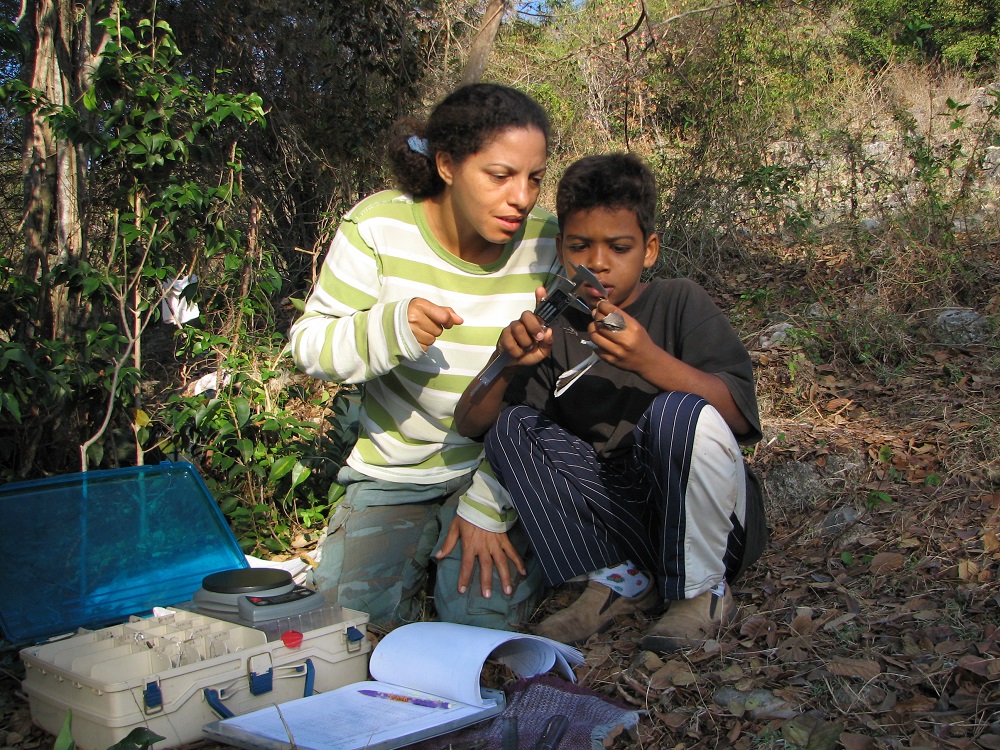Campamento Barrancolí: Partnering to bring environmental education to rural Dominican communities
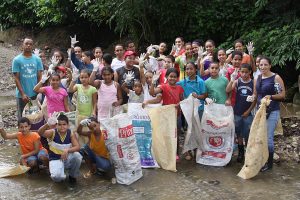
The National Aviary has partnered with local conservation organization, Grupo Acción Ecológico (Ecological Action Group; GAE) in the Dominican Republic to pursue community education projects. In 2012, based on our work with the stream-dependent Louisiana Waterthrush, GAE was the recipient of the prestigious Ford Motor Company Conservation Award to broaden community education efforts about the importance of clean water for birds, wildlife, and human health.
Campamento Barrancolí is an environmental education initiative serving children ages 6 to 13 in rural communities in the Dominican Republic. This summer camp creates a sense of responsibility for the health of the environment, and promotes awareness regarding wildlife and environmental issues. Using resident and migratory birds as flagship taxa, we target a wide range of local issues including waste management, water pollution, and hunting.
In the community of Loma de la Joya, 120 children participated in camp sessions that combined traditional games with recycled art, eco-drama presentations, interactive lectures, and hands-on nature workshops. Groups were encouraged to learn about an assigned bird species, for which they prepared a skit during a community-wide talent show. Other bird-related activities included a lecture on avian anatomy, and a workshop on songs and calls of birds during which many kids were quick to supply their own knowledge of local bird song!
In addition to summer camp activities, we sponsored a contest for children recording nest observations. The main goals of this project were to promote nest etiquette as a means to tackle the issues of bird-taking, egg-harvesting, and the illegal pet trade. Over 40 children participated in this program and recorded over 100 nest observations! The winning team recorded and documented 62 individual nests within La Joya.
Campamento Barrancolí serves as a model for camps in other rural areas. Providing this education at a young age helps to ensure the habitats, and the birds who depend on them, are protected for generations to come. After all, these children will help build the future!
Field interns: Training the next generation of avian researchers and conservationists
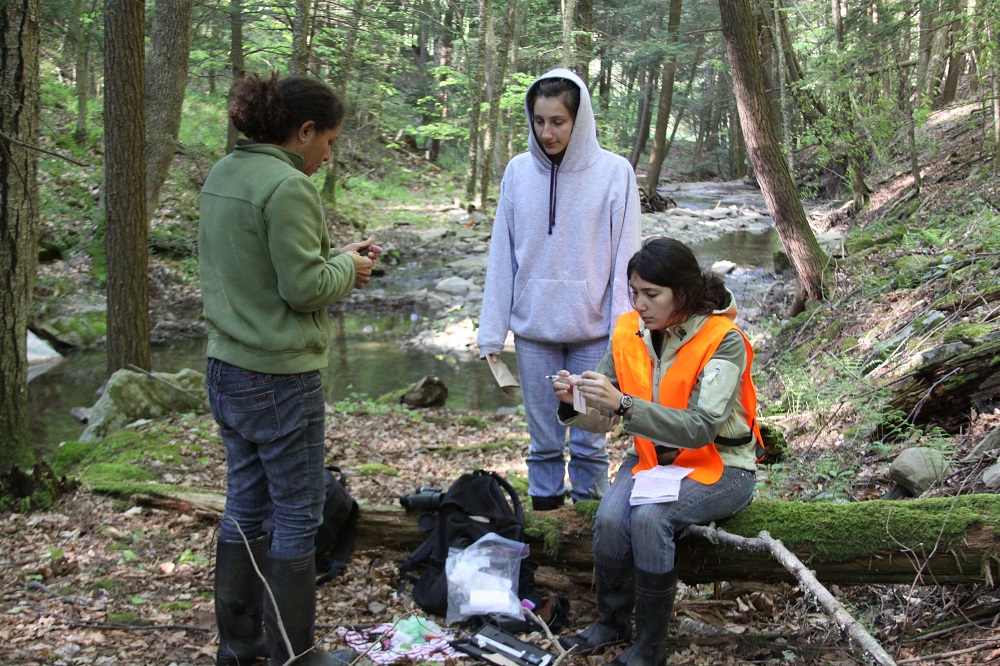
Training to become a field ornithologist is not always readily available, especially in countries without a long history of ornithological research or a robust and economically viable system of public education. In many situations, National Aviary field research programs become critical training centers for the next generation of avian researchers and conservationists.
An important aspect of our work in the Dominican Republic and elsewhere is to provide training opportunities to aspiring ornithologists. In many countries, there are few opportunities for advanced training in field ornithology due to socioeconomic conditions, the lack of mentors or trained professionals, or the absence of programs in ornithology, ecology or related studies in universities.
Through long-term field studies, and with a devotion to field personnel, our field biologists are each expanding their abilities in mist netting techniques, bird banding, determination of age and sex of birds, and behavioral observations. In addition, they learn techniques for assessing habitat quality, monitoring of many species, radio telemetry, nest searching, and data recording. With additional experience, field biologists learn the fundamentals of experimental design and data analyses, and many have gone on to be full collaborators in our shared studies.
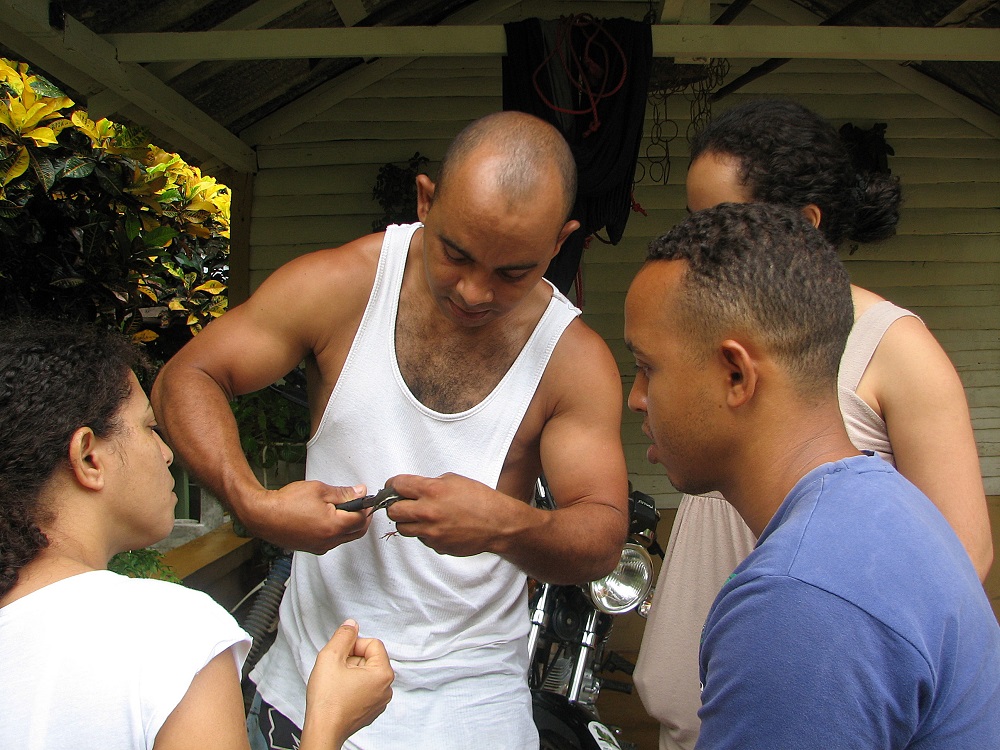
Field ornithologists also serve as role models for other young students. Many people, no matter how interested they may be in the natural world, may have never realized that a career could be had studying birds. Our field ornithologists provide that model. They also serve as role models in communities across the countries that host our field studies. In these rural areas where an outsider attracts attention – especially one who is catching and banding birds – children are drawn to our field sites. The opportunities for conservation education then are enormous, and in many instances these children have been inspired to organize their own clubs to watch birds, clean up nearby streams, stop the use of slingshots, and even to reduce poaching of parrot chicks.
Our goal is to help these field biologists develop the expertise to initiate their own research projects and conservation actions. Training the next generation of bird conservationists also offers many opportunities for community education and boosting the development of a conservation ethic.
Sharing Experiences Zoo-to-Zoo: ZooDom
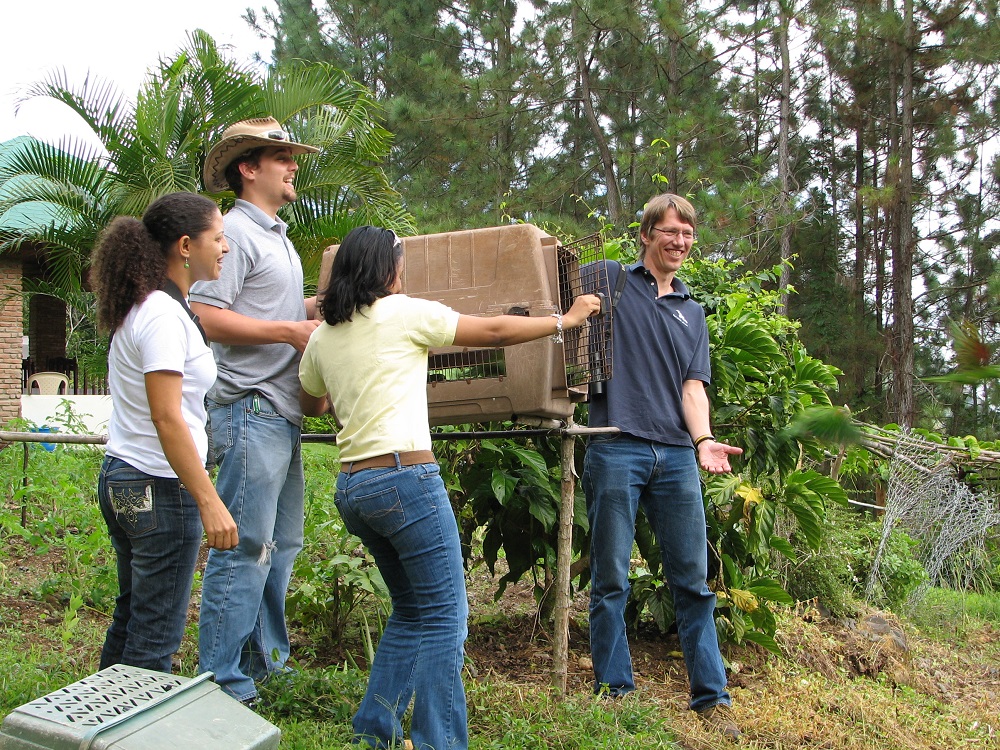
As a member of the Association of Zoos and Aquariums, the National Aviary strives to support diverse activities with similar organizations in host countries where we also pursue research and conservation activities.
In the Dominican Republic, the National Aviary partners with ZooDom, the National Zoological Park in Santo Domingo. While the importance of zoos as a repository for many threatened and endangered species is well-known, reintroducing birds from zoos back into the wild is another conservation goal, and has been achieved for a number of species. The National Aviary has returned Andean Condors to the mountains of Columbia, and we have helped return more Guam Rails to the wild than any other zoo in North America.
We work to conserve many other species that one would not find in our facility but are of conservation interest in the wild. After all, our goal is to identify, arrest, and reverse declining populations before they become so threatened that they require breeding in human care and reintroductions.
We partner with ZooDom on the breeding of threatened species in human care, providing advice and support on the rehabilitation and release of confiscated parrots and parakeets. The trade in wild parrots is a major conservation issue, but increased success in enforcement presents new challenges for preparing confiscated birds to be returned to the wild.
The National Aviary also supports ZooDom by providing professional training for veterinarians, advice on developing protocols for wellness, and guidance in the training of birds, resulting in the development of a bird free flight show at zoo in Santo Domingo.
